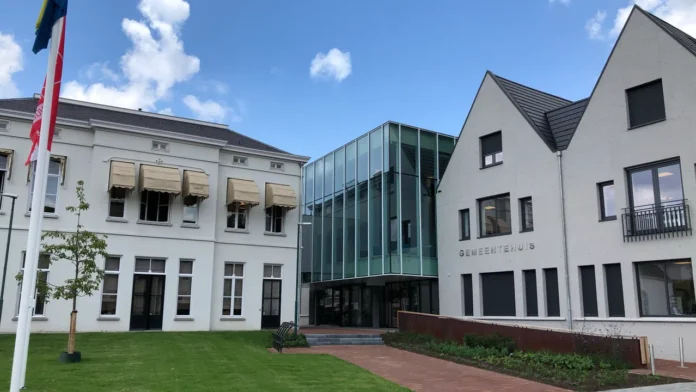Geldrop-Mierlo is struggling with a deficit of almost €3,500,000. To eliminate this, the municipal government wants to increase parking rates, cut civil servants and cut on youth policy. Political parties can partly agree with the proposals. “We are not going into a cramp”.
The Mayor and Aldermen have made budget cuts proposals to the municipal council. On Tuesday evening, local politicians debated these proposals. The advice is not only aimed at budget cuts, but also at increasing parking rates, property tax and postponing sustainability and climate goals.
Housing costs
“Fewer civil servants could already solve part of the problem”, Ton van Happen, party leader of D66 (democrats), says. “During the debate that we will have with the council, I will also make it clear that we as D66 are pleased that a number of proposals made by the board have already been raised by us. Think of limiting the number of civil servants. In three years, the number of employees at the town hall has increased by fifteen per cent. That is a significant expansion”.
D66 wants to prevent the budget cuts from being passed on too much to the residents. “So no increase in property tax”. At the same time, an even distribution of the ‘pain’ is a given for Van Happen. “That is why we are in favour of introducing paid parking in Mierlo. You cannot increase parking rates in the centre of Geldrop and keep parking free in Mierlo. Of course we understand that this will not make us popular, but we are one municipality and the same rules should apply everywhere”.
Serious concerns
Mark van Schaijk, party leader of CDA (christian democrats) in Geldrop-Mierlo, believes that no big gains will be made by introducing paid parking throughout the municipality. He sees more in cutting costs in the organisation itself and ‘creating extra space in accounting’. “This means that we use certain facilities that we do not use in other ways. And spreading out the plans for sustainability and climate improvement also saves a lot of money. As far as we are concerned, this is not a problem, because there were no concrete proposals yet”.
CDA does have serious concerns. “The year 2025 is not called the ‘ravine year’ for nothing. Many municipalities are in danger of getting into trouble, because the central Dutch government contribution is lagging behind expectations. And we are largely dependent on national politics in The Hague. Especially since we are increasingly being given more tasks. Think of youth care and the WMO (Wet Maatschappelijke Ondersteuning, social support act). We are eagerly looking forward to Prinsjesdag* (Prince’s day) when we will hear what the central government has in store for the municipalities.
Understanding
Like CDA, the largest coalition party DGG (local party) understands the budget cuts proposed by the Mayor and Aldermen. Group chairwoman Ingemar Lubbers: “You cannot disagree with them in terms of content. They have clearly looked at what is possible and in our opinion a well-considered decision has been made. Without wanting to trivialise the matter, we were not shocked by a deficit of €3,000,000. We are not going into a cramp”.
DGG does not necessarily want to stick to its principles with regard to, for example, increasing the property tax and postponing the sustainability and climate objectives. “We are against an unnecessary increase in the property tax. However, if the goal is an increase, then we can agree with this.”
Too much control
Opposition party PvdA (labour party) does not want to cut back on sustainability on the expenditure side and sees more in introducing parking tax in the centre of Mierlo and an increase in the property tax by almost ten per cent. Group chairman Paul Elsendoorn: “But certainly not cutting back on social provisions. In our opinion, there is too much control on finances and too little on policy. Within the PlusTeam – which offers voluntary assistance to residents who have been referred by the CMD (Centrum voor Migratie en Ontwikkeling, centre for migration and development) or Veilig Thuis (safely home) – this has not been agreed upon”.
As the other parties also emphasise, municipalities are in danger of losing billions because they are not receiving enough inflation compensation. “The government promises the municipalities full compensation for inflation, but gives more than one per cent per year too little”, Elsendoorn says. “We would therefore like to know from the board what this means for the Municipality of Geldrop-Mierlo and whether additional cutbacks are necessary as a precaution. For the rest, we are positive about the process of arriving at a balanced budget”.
Source: Studio040
Translated by: Bob
*Prinsjesdag (little princes Day, is the day on which the reigning monarch of the Netherlands addresses a joint session of the Staten Generaal der Nederlanden (consisting of the Senate and the House of Representatives) to give the Speech from the Throne (Dutch: Troonrede), similar to the annual State of the Union in the United States or the British State Opening of Parliament. This speech sets out the main features of government policy for the coming parliamentary session.











